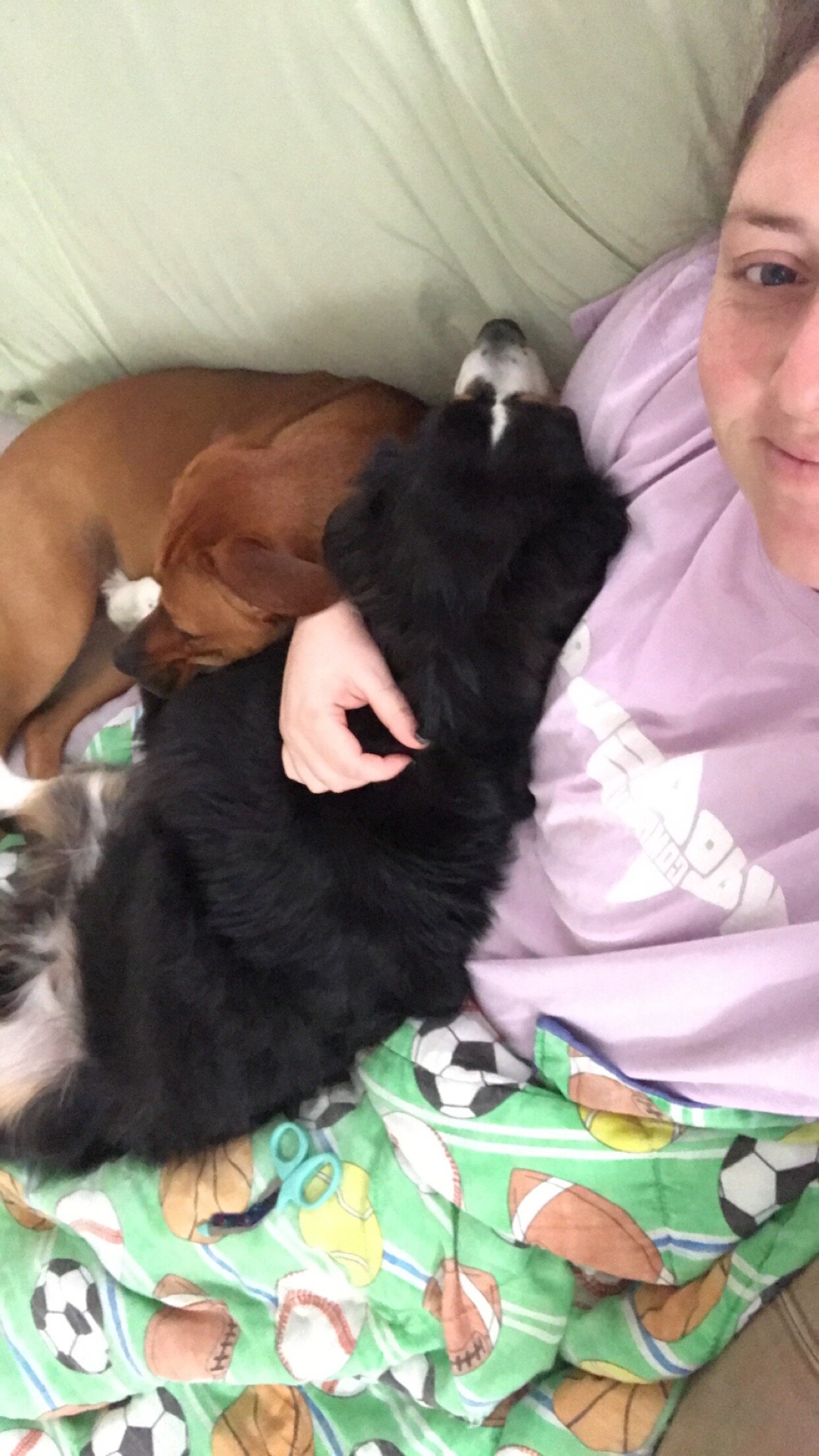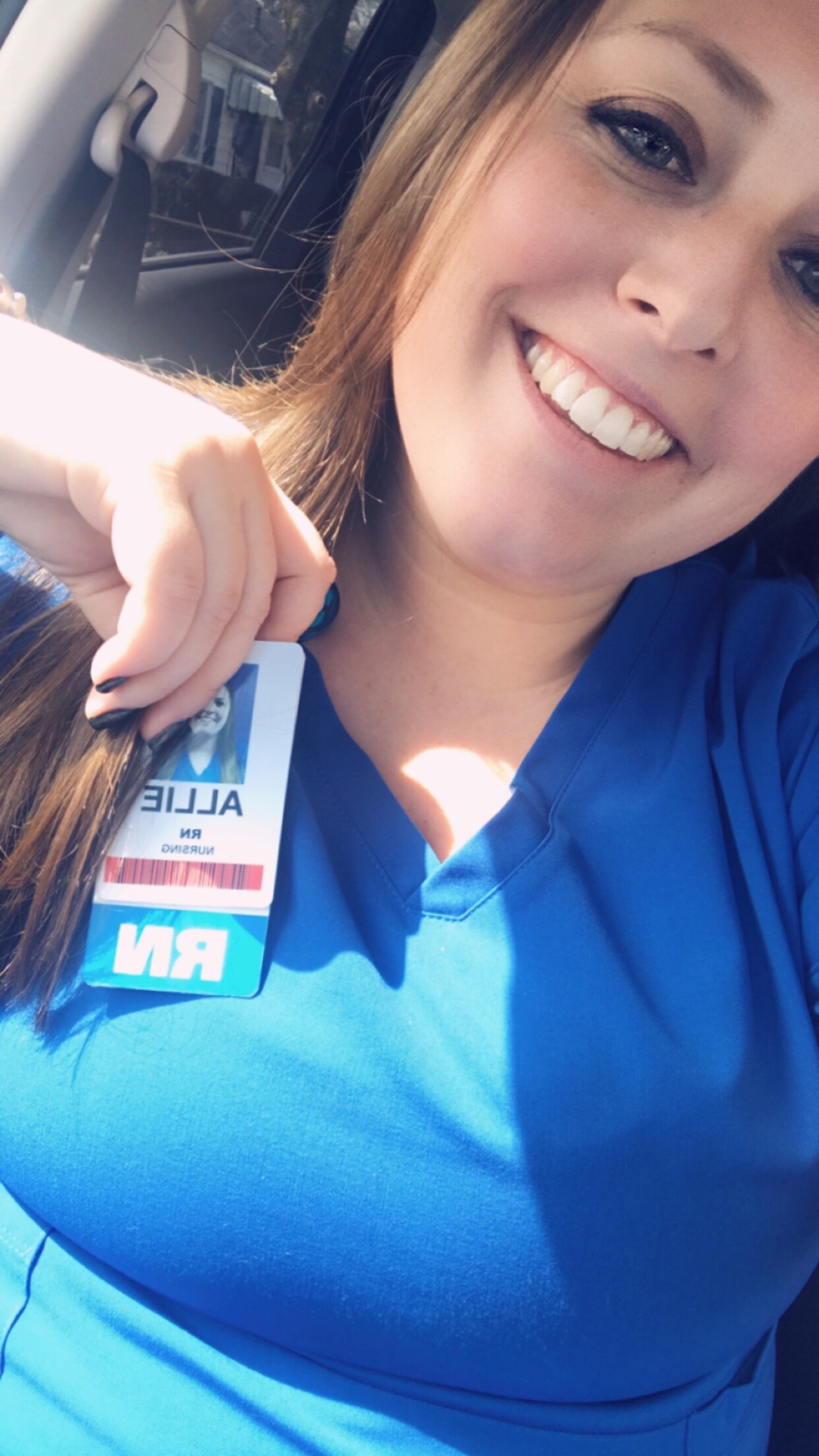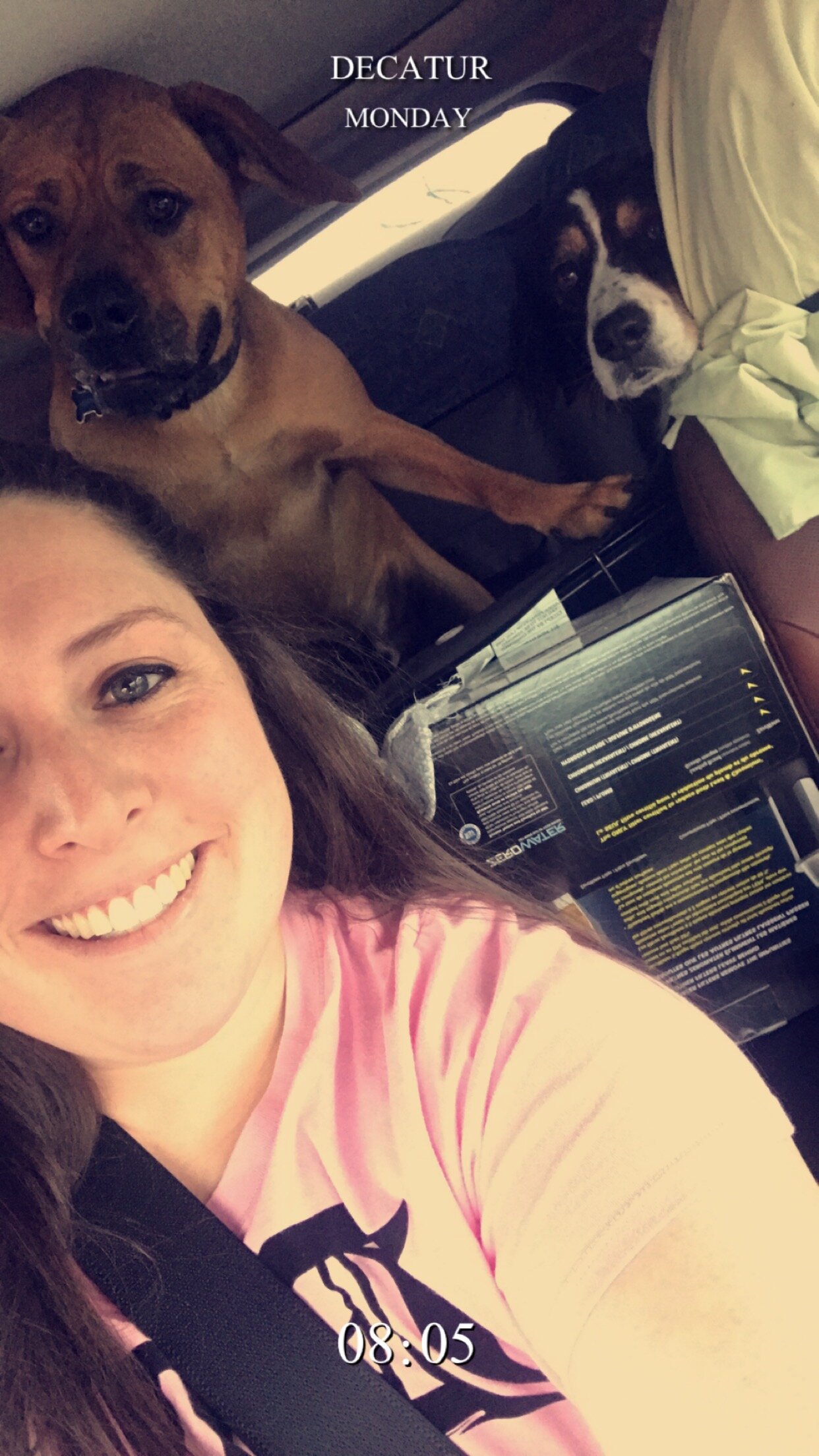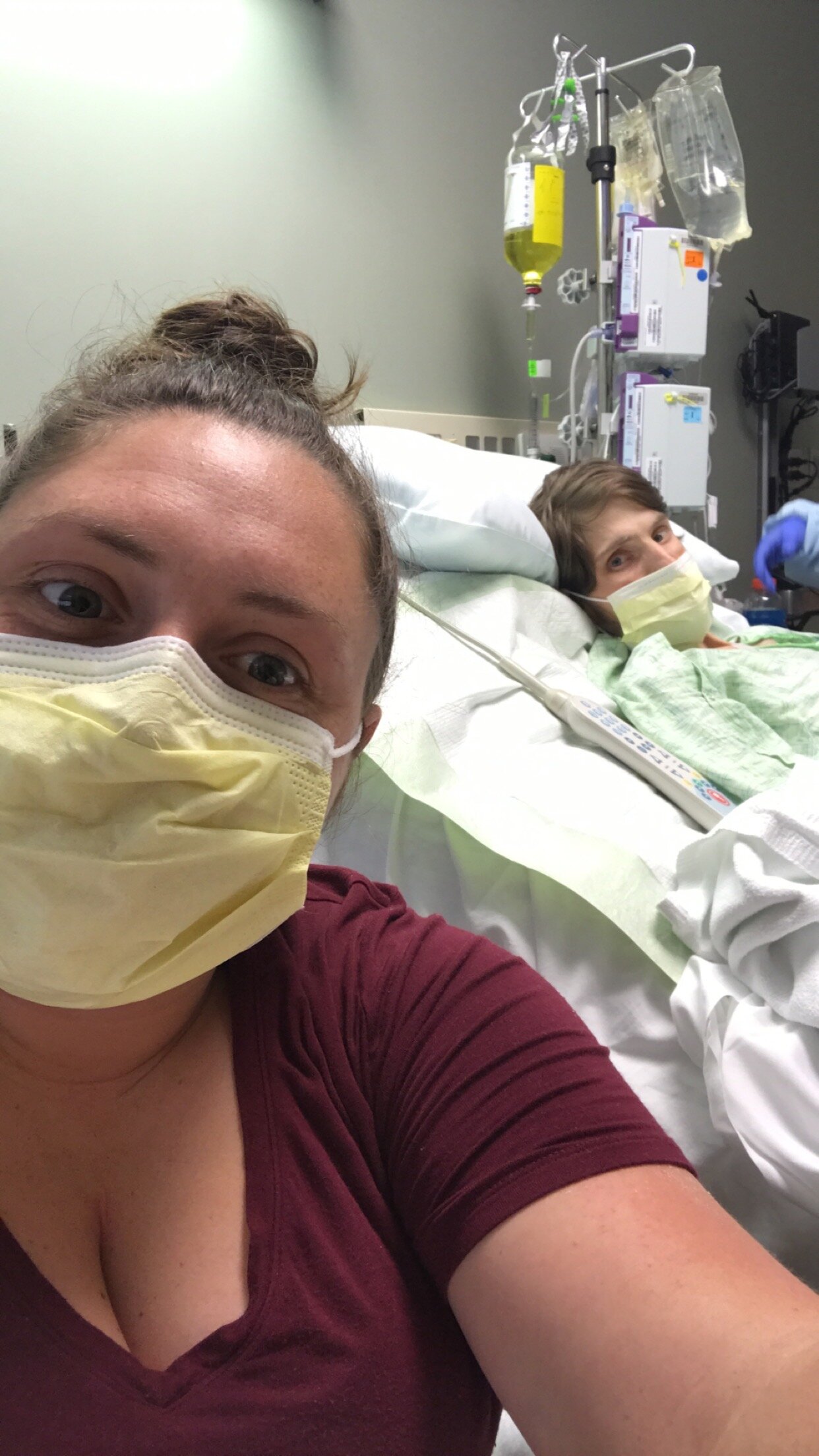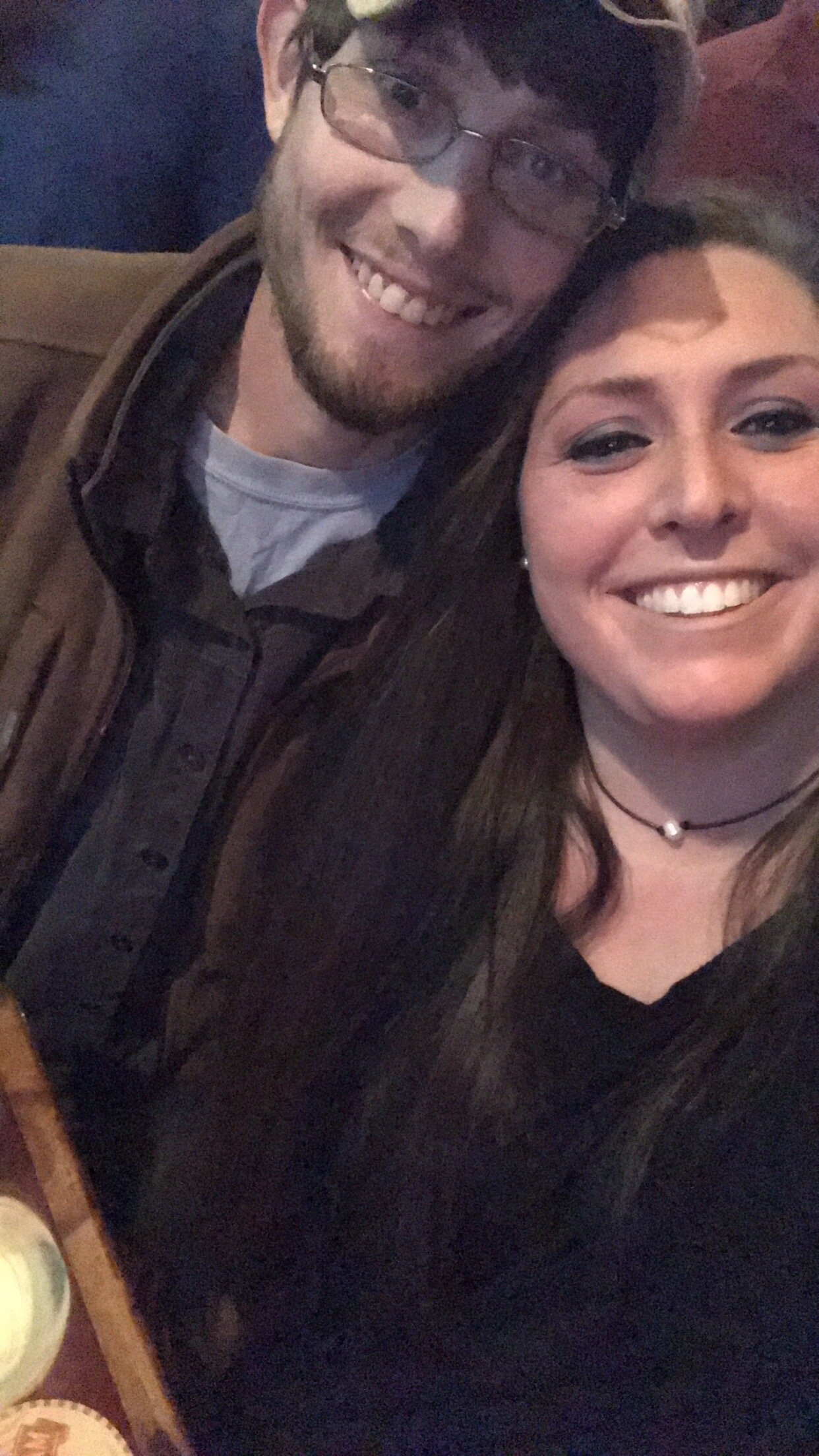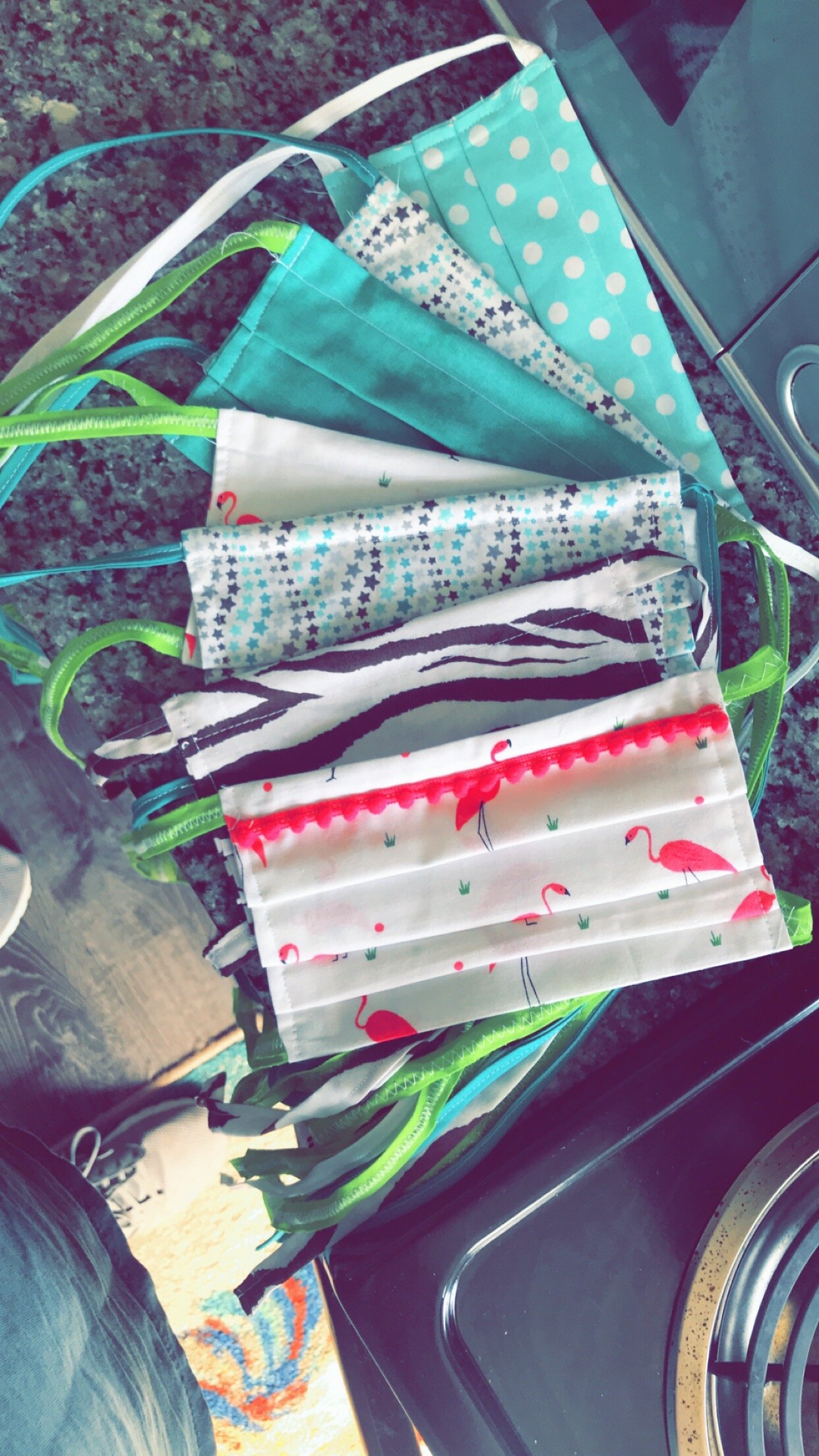Travel Nurse in the Trenches — Heroes On the Front Lines of the Coronavirus
/No one is as close to the COVID-19 pandemic as our healthcare professionals, and while this travel nurse dreamed of seeing the world, first she will fight on the front lines against the unpredictable Coronavirus that threatens millions worldwide. She describes a day in the life of a nurse immersed in the crisis and offers advice on what you can do.
April 7, 2020
By Michelle Segrest, Navigate Content, Inc.
Before she leaves work each day, she wipes down her entire body with medical-grade bleach wipes—from the top of her head all the way to the bottom of her shoes. She drives home and is grateful that there is no one there but her dogs, Bailey and Buzz.
“I never thought I would be grateful to live alone,” she says.
Waiting for her at her front door are two industrial-strength garbage bags. Before she walks in the door, she places her shoes in one of them. Then she strips down to her birthday suit and puts every stitch of her clothes in the other. The bag and it’s contents go straight to the laundry.
She immediately jumps in the shower and vigorously scrubs her body with boiling hot water. It’s similar to how they scrubbed Meryl Streep in the famous scene from Silkwood, a movie about severe nuclear contamination that was made 11 years before this 26-year-old travel nurse was born. Then she walks Bailey and Buzz, the highlight of every day.
“My job as a travel nurse happened at the perfect time,” says Allie, who left her home in Alabama for West Virginia three weeks ago for her first assignment as a travel nurse. “People might wonder why I say this since I’m exposed to the Coronavirus every single day. But at least this way, I won’t bring it home to my parents or other people that I love.”
She is now more than 500 miles from home—alone, grateful, and afraid.
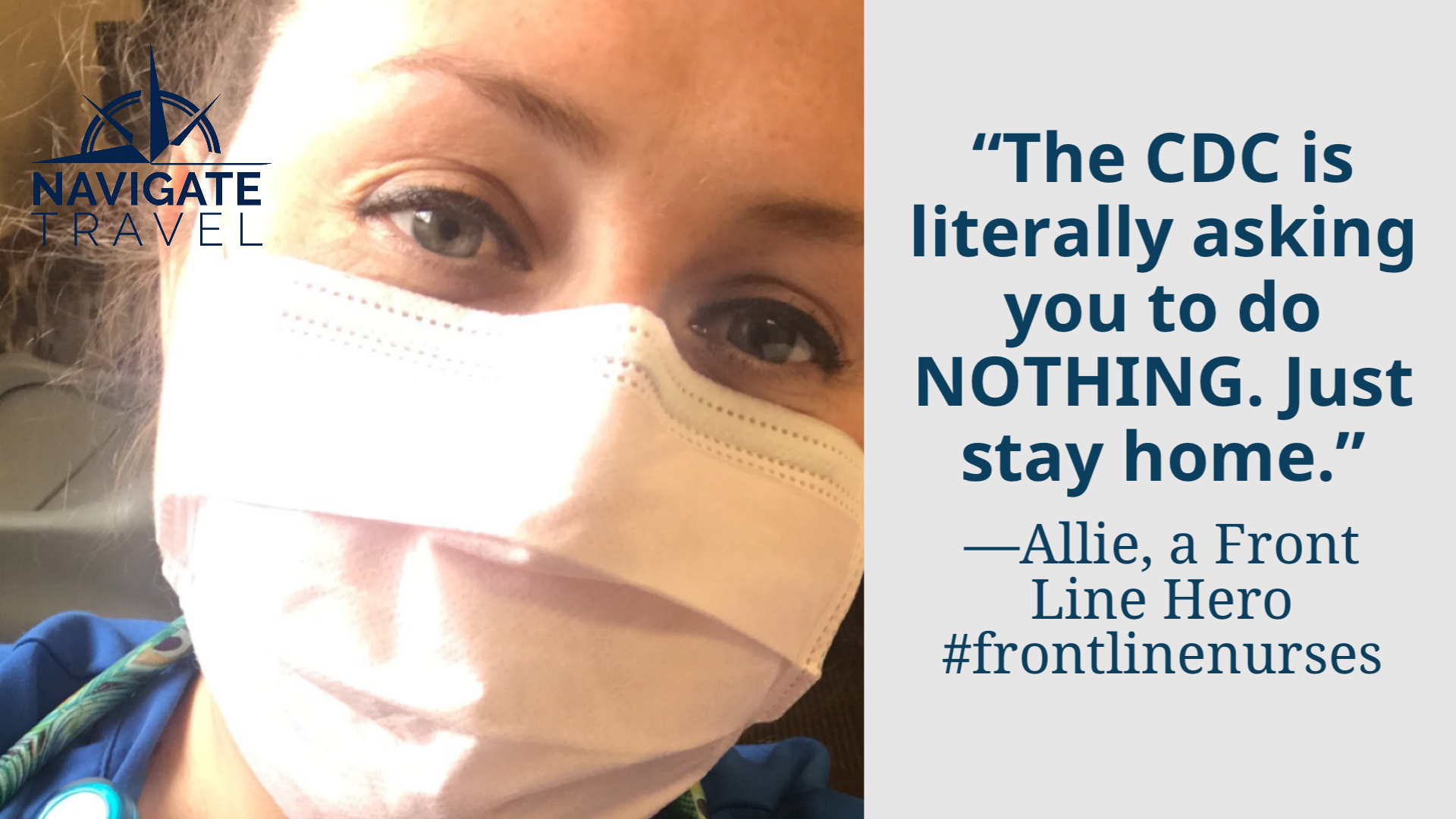
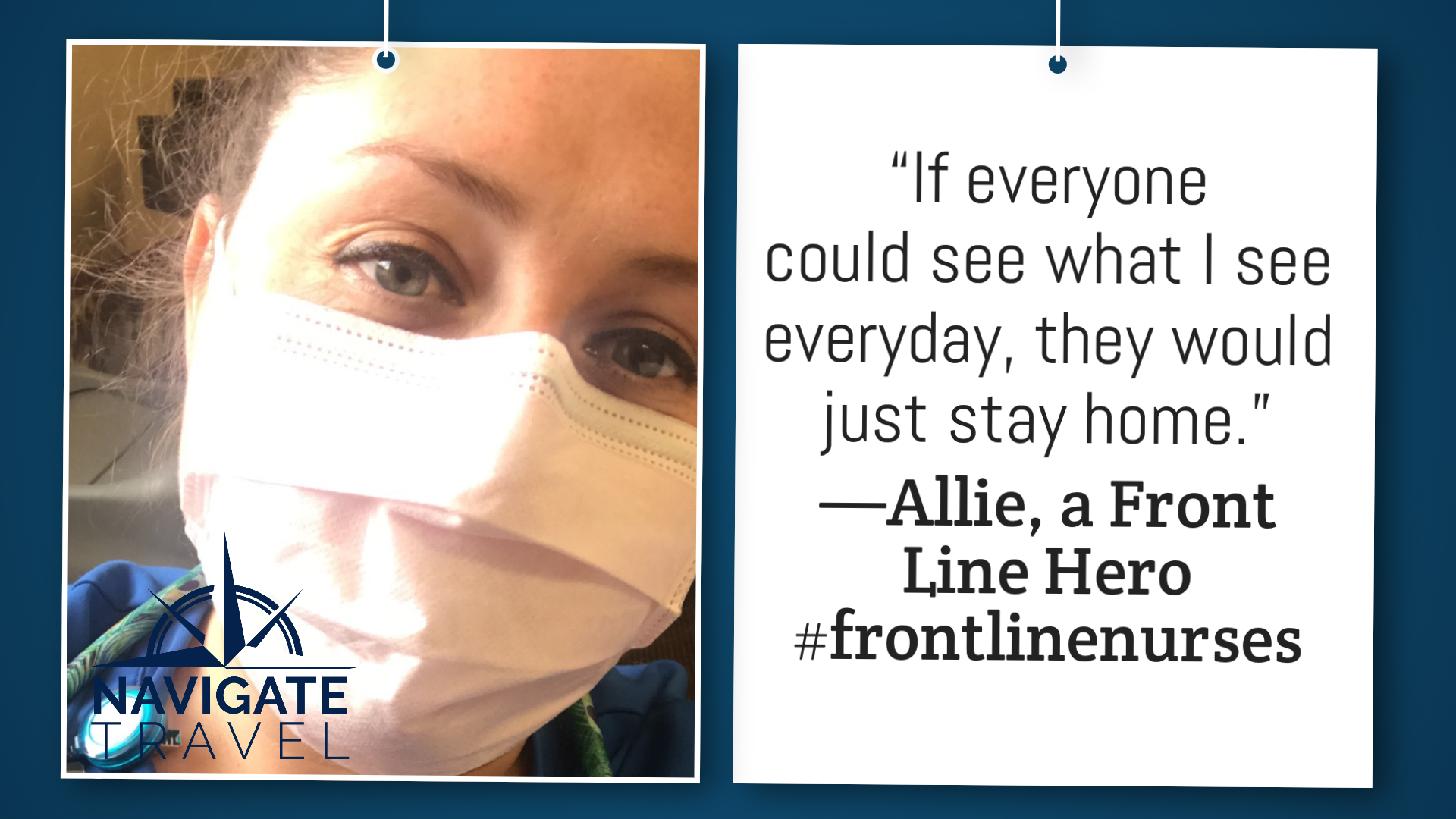
Nurses Serve on the Front Line of the Coronavirus Pandemic
“As a nurse, I’ve seen a lot,” Allie says. “I’ve been exposed to patients with scabies, shingles, C-diff, Chicken Pox, HIV, AIDS, Hepatitis C—you name it. I never felt afraid. I was born to do this. I was born to take care of people. I would walk into the room like I’m big and bad and like I have some sort of super powers. Whatever you have can’t touch me, I would think to myself. When I say I’ve seen a lot, I mean it. I watched the love of my life slowly die after a year-long battle with colon cancer, and I took care of him every single day. I watched him go through chemotherapy and shrivel into a skeleton. I was born to do this. I was born to take care of people.
“But this is scary.”
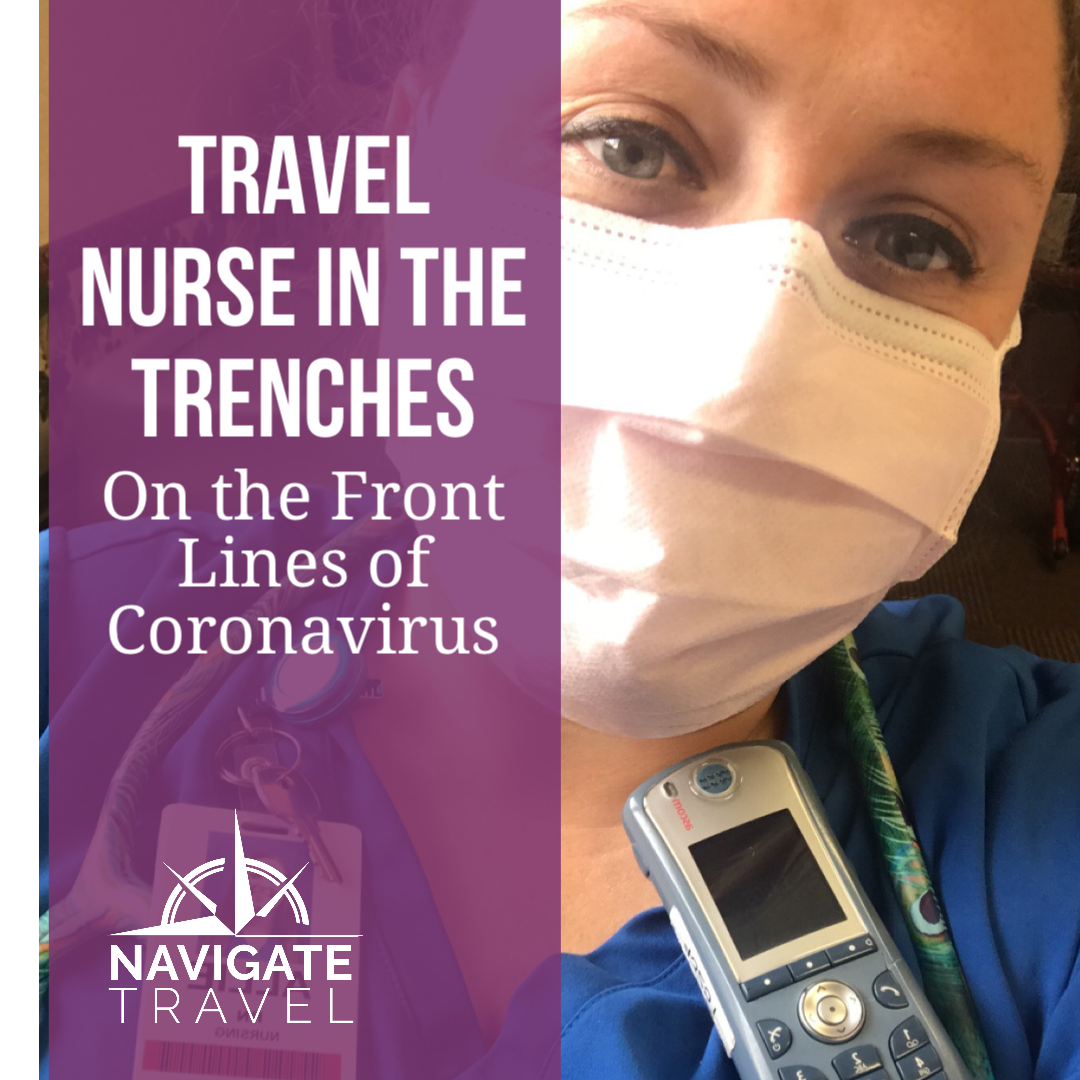
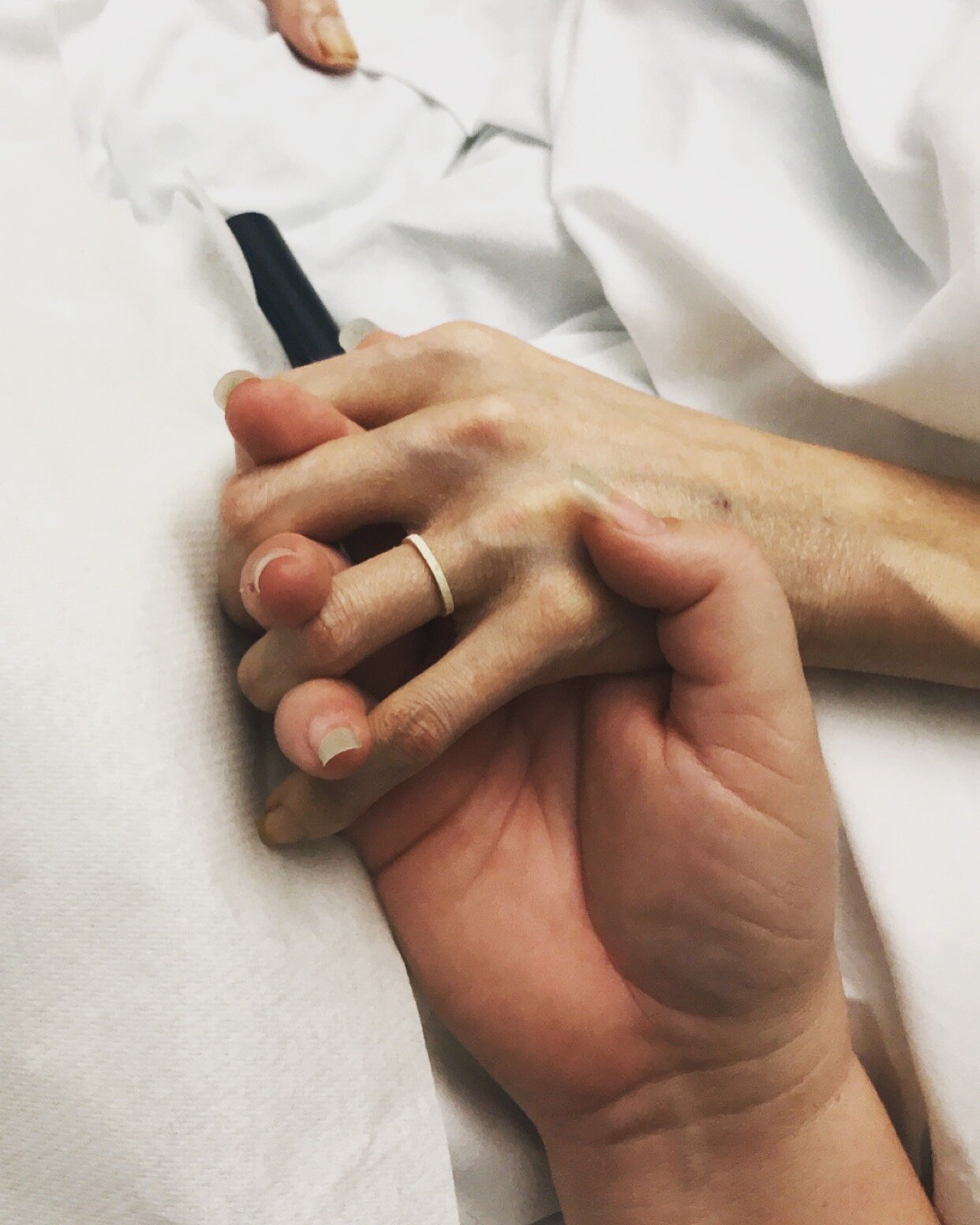
How Patients with Coronavirus Suffer
Now, she walks through the hospital doors and shields herself with a mask and protective gear. The cloth armor helps, but it no longer makes her feel invincible. Coronavirus is her Kryptonite.
Now, as she walks through the quiet, deserted halls of her hospital, the eerie echo of death lurks around every corner and behind every door. She can hear Coronavirus patients fight and gasp for every breath. Some have the luxury of ventilators to help them breathe. Some do not.
They struggle alone. No visitors are allowed.
Allie no longer feels invincible, but she continues to battle from the front lines.
She washes her hands at least 384 times a day. She’s done the math.
“I visit eight patients one to two times per hour for 12 hours,” she explains. “I wash my hands before I enter the room each time and after I leave each time. I’m surprised I still have fingerprints.”
The Reality of the Coronavirus Pandemic
But it’s a small price to pay to protect the people around her and control spread of the virus. For those who think staying home alone and washing your hands constantly is difficult, Allie recommends considering this . . . “Think about how many people you came in contact with the past 14 days and how many people they each came in contact with the past 14 days. If one of them has Coronavirus, well . . . just do the math.”
A healthy person may not experience fever. They may have a cough and perhaps shortness of breath. But they may still have Coronavirus. It could easily feel like having allergies, Allie says. “What people don’t understand about the inconvenience of lockdowns is that we can have this virus for up to 14 days with no symptoms. The incubation period is anywhere from two to 14 days. If you had to tell the health department everyone you’ve been in contact with for the past 14 days, could you do it? Could you name them and provide phone numbers? This is the kind of inner circle you need to have. If you had to provide this list, would you be proud of yourself? Would you think you did everything you could to prevent the spread of the virus?”
Then think about what the people on the front lines are going through.
Every day, Allie goes home to a house with no other humans. Her colleagues who have spouses and children must quarantine themselves from their own families because they have most definitely all been exposed to the virus. One of her colleagues quarantined herself from her kids for 14 days. Then she found out one person she knew was exposed and she had to wait another two weeks before she could risk seeing her children. Just in case.
One of her fellow travel nurse friends left two weeks ago to work at ground zero in New York.
What Everyone Can Do to Prevent the Spread of Coronavirus
“I just wish people would take this seriously,” she says. “If everyone could see what I see every day, they would just stay home. It’s so easy. Yes, it’s inconvenient. But this will save lives. It’s just that simple. Stay home.”
This is not exactly what Allie had in mind when she signed up to be a travel nurse. She wanted to see the world and experience different places and cultures. So far, all she’s seen of her new hometown are private hiking trails and the front yard where she plays frisbee with Bailey and Buzz. But it’s okay.
“I was born to take care of people,” she says. “I will see the world when all this is over.”
The hospital where Allie works is huge with separate wings and floors for Coronavirus patients. But that doesn’t mean the other parts of the hospital and other staff members are not at risk.
“I am not in direct contact with the Coronavirus patients,” Allie explains. “However, some patients arrive with certain symptoms that meet the criteria to have the COVID-19 test. West Virginia was one of the last states to record positive Coronavirus results, but this could be because of the lack of tests available. The criteria is insane. Of six boxes, you must check five of them to even get the test. What’s happening, for example, is people come in with diabetes and they are treated for diabetes. But perhaps this is a 70-year-old male who needs to go to rehab before he goes home. The rehab facilities and nursing homes require that he needs a negative Coronavirus test before they can accept him. They then give him the Coronavirus test, and he tests positive. They may have a few symptoms but not all of them. Now he’s been exposed to several nurses without protective masks or protective gear. Now he has exposed an undetermined amount of people. It’s chaotic.”
How Do You Know if You Have Coronavirus?
Two weeks ago, when Allie began working at this hospital, all nurses were not wearing masks. “Now we are,” she says. “It changes every day, and that’s what makes it so scary. We just really don’t know everything we need to know about this.”
These patients cannot breathe, Allie says. “They choke for breath and gasp for air. They describe it as having an elephant sitting on their chest. If they walk up two steps they are bent over and literally out of breath. Athletes who sprint 100-yard dashes can’t get enough air to walk up two steps. It just attacks the lungs. For people my age who are healthy, some are getting over it. But there are also healthy people my age who are dying.”
Coronavirus Prevention Advice from a Nurse on the Front Lines
Allie has simple advice for everyone. “I have to work, and I’m exposed to this on the front lines,” she says. “If you have to work, afterward go straight home, take your clothes off, take a shower, and stay home. If you are stir crazy and need fresh air, exercise in your front yard. Facetime with your friends and family and have that connection, but stay home. It’s not about me and you. It’s about your grandparents. Think about them. My grandfather has had Cancer three times, and he would not survive this if he got it. He just wouldn’t. So as badly as I would love to see him and hug his neck, I will stay home. I tell my Mom to not go see him. Don’t take the chance.”
Allie says what we must sacrifice is not so bad.
“It may not be fun eating beans and pasta for breakfast, lunch, and dinner, but we can survive without luxury items and fancy food for a few weeks,” she says. “If in two weeks we can get past this because we ate Vienna sausages instead of eating at a restaurant with our friends, I think it’s worth it.”
The daughter of an Eagle Scout, before moving to West Virginia Allie loaded up on non-perishables—rice, canned goods, beans, and cereal. “If I have to quarantine, I’ll have enough food,” she says. “When I got here, I loaded up on milk, eggs, butter, cheese, and toilet paper. Without Dad’s boy scout routine, I probably wouldn’t have anything.”
How to Move Forward in the Climate of Coronavirus
With ever-changing information, the learning curve is steep.
“Always consider your source of truth,” Allie advises. “Don’t get your main information from Facebook or Twitter. Definitely follow the social distancing. I know you want to be with your friends, but just do it virtually. We all have technology. If you get together with 10 of your friends and play cards one night, that’s really fun, but what if one of you has it? Again, remember to think about who you’ve been in contact with the past 14 days and who they’ve been in contact with. What if one of them has a grandfather with lung issues. He could die if he gets it. I know how I would feel if I gave it to someone else. Seriously, just stay home. This will all be over soon.”
How Does a Nurse Find the Emotional Strength to Go to Work Every Day?
“That’s the question of the day,” Allie says. “This is just what I was born to do. I was born to take care of people. If every nurse is afraid to go to work, who will take care of these people?”
The hardest part, Allie says, is that these people are experiencing this alone. In fact, even people who are being treated for something other than Coronavirus are forced to be alone while in the hospital. A patient not much older than Allie was diagnosed with Cancer recently. The doctor informed the spouse over Facetime.
It was so hard to see these people get this news alone,” Allie says. “I could hear the kids on Facetime asking when their parent when they would be home and completely unable to understand why they couldn’t be there. No one should have to get that kind of information alone. We have become not only the caretakers for these patients, but also their family. I try to empathize with them and let them know that I’ve been through this. I can’t imagine getting this news about my boyfriend and not being able to hold his hand or hug him. It’s devastating.”
As hard as it is, staying home and respecting others with social distancing is the smart thing to do. “It’s the only thing to do,” Allie says. “The government is literally asking us to stay home and do NOTHING. It should be so simple. I don’t know why it’s such a hard thing for people to do. Remember that you could have Coronavirus and not experience any symptoms. You may not even know you have it, but you could be giving it to other people. Many people without symptoms are testing positive for Coronavirus.”
The CDC guidelines are changing every day. “I get an email every day describing new guidelines and recommendations,” Allie says. “There is just not enough research and information to really know what we are up against. Until we do, I’ll continue to serve on the front lines. But you should stay home. Just stay home.”
The biggest thing is how do you protect others, not just yourself, Allie says.
“It’s scary. Actually, I think people are not scared enough. Be scared. If more people were frightened, maybe we would be gaining some ground. So many people are wearing that imaginary bullet-proof vest that I was wearing, but no one is immune. I’ve seen multiple sick people who maybe had the virus before we had the test for it. Some of us nurses in the beginning were saying that if the flu had this much media coverage we would all be afraid of the flu.
“Once it was here and we had the tests and the multiple cases of positives started to occur it became serious. We had these deaths before, but perhaps they were ruled as pneumonia because these patients laid in the bed for so long they developed pneumonia. Now we understand that Coronavirus may have been killing these people. Now, we see how fast it is spreading and how it’s killing not just older people, but also young healthy people. For a while we thought it was only killing old people. Then we thought it only killed smokers. Now we have a diagnosis. It affects everyone, and we don’t know how to cure it. This is the reality. We also don’t have the equipment to keep you protected or the research to tell you what to do. This is all reason to be scared.”
Meanwhile, this young 26-year-old travel nurse still has dreams.
“I would love to someday go to Hawaii, or at least somewhere tropical,” she says. “So far, I haven’t even been able to explore this part of West Virginia. But it’s okay. For now, this is my purpose. I was born to do this.”
Supporting Delivery Drivers During the Pandemic
The COVID-19 pandemic has made terms like “shelter in place” and “essential workers” part of our everyday language. It’s also highlighted deliveries as a vital service, since having food, medicine and other necessities delivered can be the only way homebound or quarantined people can get them. Read about what Bankrate is doing to make a difference!
Read More Articles About Ordinary People Doing Heroic Things
Wine to Water — How One Man Made a Difference
Pump Industry Heroes — Solving the World’s Water Problems
Read More Articles About Heroic Efforts During the Coronavirus Pandemic
Manufacturing Companies Make a Difference During the Coronavirus Pandemic
COVID-19's Impact on Manufacturing & Industry
Manufacturers and Industry Continue to Impact the World’s COVID-19 Pandemic Efforts
If you like this article about a Coronavirus Travel Nurse in the Trenches, please PIN IT!
This page contains affiliate links. If you click on the product links and make a purchase, it allows me to make a small commission at no extra cost to you! Thank you for your support and I hope you find value in this content!





